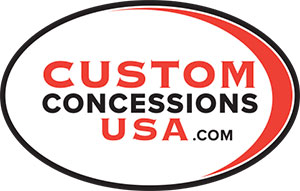
You’ve created the perfect food truck concept. Now you’re ready to make your concept a reality.
Understanding food truck expenses will help you plan financially to start your business. The truck itself is an obvious expense, but you might not think of the other little costs that add up quickly.
Check out these costs of starting a food truck.
Food Truck Vehicle
Buying a food truck is often the most expensive part of starting a food truck business. The size, features, and age of the truck affect how much you’ll spend.
If you can’t afford to buy your truck outright, you can look into the option of financing the truck. This will involve ongoing monthly payments.
You’ll also want to customize the truck inside and outside to reflect your business branding and cooking needs.
Startup Food Truck Expenses
Before you can start running your food truck, you’ll need to pay for certain startup costs. This includes licensing, registration, and permits.
The requirements and associated fees will vary based on where you plan to operate. To calculate those expenses, check with the cities where you’ll be operating your food truck.
Equipment
Your truck will need custom cooking equipment based on the type of food you plan to serve. That might include the following:
- Oven
- Fryer
- Grill
- Refrigerator
- Exhaust fan
- Warming lamp
- Generator
You’ll need serving tools and cleaning equipment to keep your gear sanitized. Food trucks also need disposable products, such as utensils and napkins, for customers.
Some food truck owners also rent commercial kitchen space. They cook the bulk of the food in the commercial space and serve from the truck.
If this is your plan, research the commercial kitchen rental costs in your area to estimate this expense.
Food Supplies
Your food costs depend largely on the menu. A simple menu with only a few choices and basic items allows for lower food costs. More complex dishes or lots of menu options increase your food costs.
A general guideline is to have food costs between 25% and 38% of your revenue.
Price out all of the ingredients for your menu items to estimate how much you’ll spend on food.
Operating Costs
The operating costs are the ongoing maintenance and fees you have to pay to keep the truck running.
Food truck insurance is a crucial operating expense that protects your investment.
Other operating costs include:
- Fuel
- Truck maintenance
- Staff wages and benefits
- Internet or cell service
- POS system
Depending on where you park your truck, you might need to pay rental fees for the parking spots.
Estimate the average monthly operating costs to calculate how much business you need to do to make a profit.
Marketing
You need a steady stream of customers to keep your food truck business afloat, so don’t forget marketing costs.
Using social media marketing is a cost-effective option, but you might choose to do paid ads and other paid marketing methods.
Many businesses outsource marketing to save time. If you wish to create a website for your truck, you’ll likely have a monthly or yearly payment for website hosting costs.
Calculate Food Truck Costs
Before you start your new business venture, calculate the total food truck expenses based on your business plan. Knowing all the costs helps you create a workable budget and get proper funding.
Are you ready to start your food truck? Contact us for a quote request to get started!
Want more food truck advice? Check out more blog posts here!
Thinking about starting a food truck? Request a free custom quote and one of our food truck specialists will help you design the truck of your dreams.
Stay up to date on everything Custom Concessions has to offer! Like us on Facebook and follow us on Twitter.
